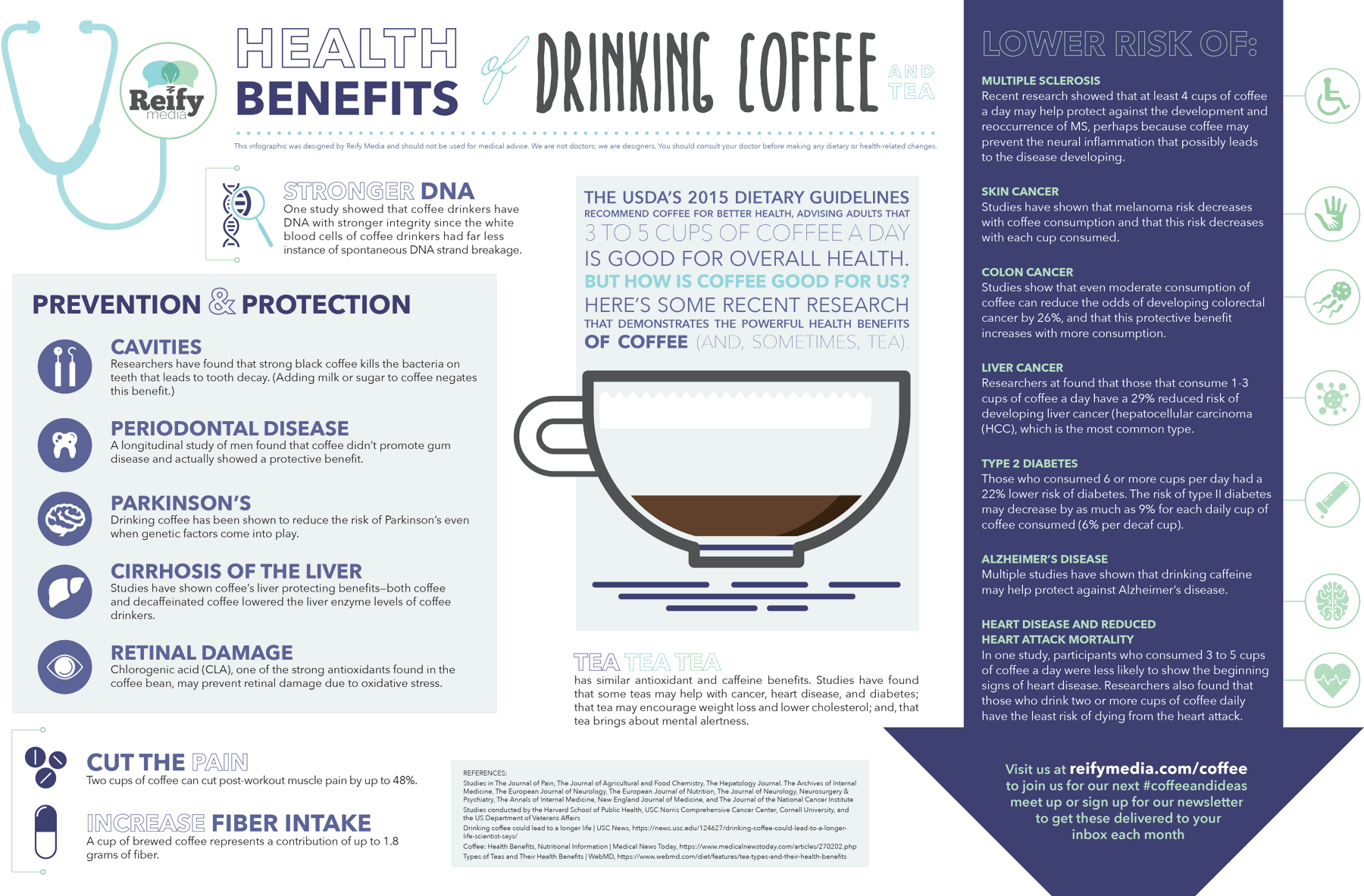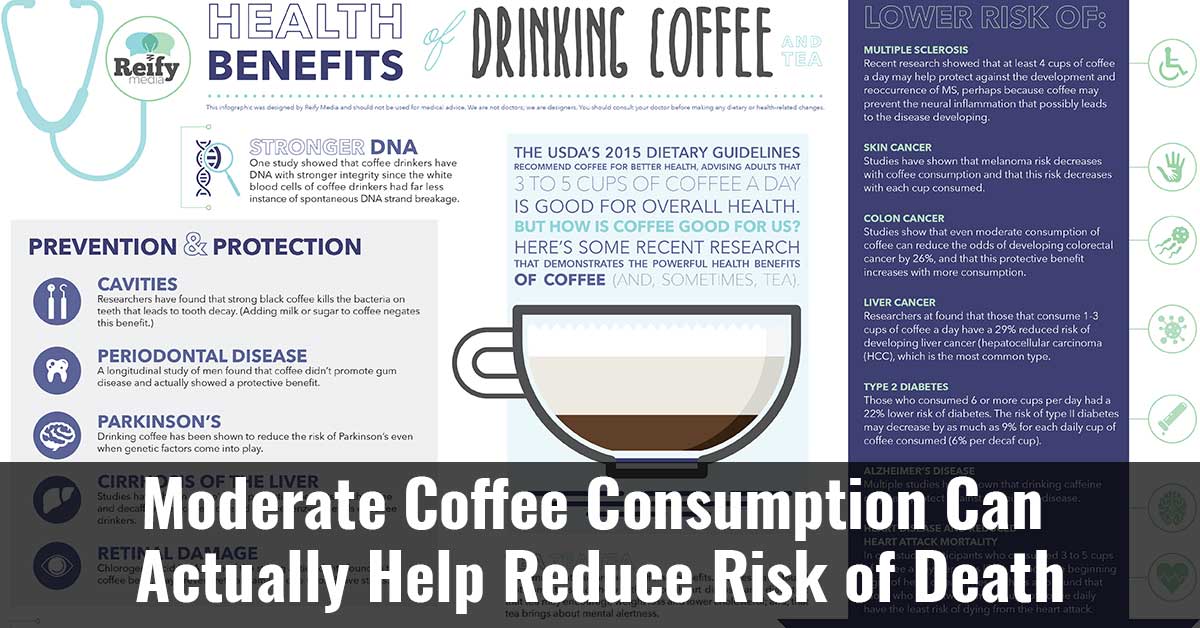A study has determined that in comparison to non-coffee drinkers, individuals who consumed moderate amounts of coffee (1.5 to 3.5 cups a day) sweetened with sugar or unsweetened were less likely to die during 7 years of follow up. The results for individuals who made use of artificial sweeteners were inconclusive. 1✅ JOURNAL REFERENCE
DOI: 10.7326/M21-2977
Prior research looking at the health benefits of coffee have determined that coffee consumption is linked to a reduced risk of death but didn’t distinguish between coffee consumed with artificial sweeteners or sugar and unsweetened coffee.
Health behavior questionnaire data was used from the U.K. Biobank study to assess the connections of consumption of unsweetened, artificially sweetened, and sugar-sweetened coffee with all-cause mortality as well as cause-specific mortality. Over 171,000 individuals without known cancer or heart disease were asked a variety of health and dietary behavior questions to establish coffee consumption habits.
The researchers found that throughout the 7 years of follow up, individuals who consumed any amount of coffee that was unsweetened were 16 – 21% less likely to die compared to individuals who didn’t drink coffee. They also found that individuals who consumed 1.5 to 3.5 cups of coffee sweetened with sugar each day were 29 – 31% less likely to die compared to individuals who didn’t drink coffee.
According to the researchers, individuals who consumed coffee sweetened with sugar added only 1 teaspoon of sugar to a cup of coffee on average. Results were inconclusive for individuals who sweetened their coffee with artificial sweeteners.
Although coffee has qualities that can provide health benefits, confounding variables such as differences in diet, socioeconomic status, as well as other lifestyle factors may have affected the results.
The researchers caution that the amount of daily sugar that was added to a cup of coffee on average in this study is a lot less than specialty beverages at popular coffee outlets, and many coffee drinkers could consume it in place of other beverages which make comparisons to non-drinkers more challenging.
According to this data, physicians can inform their patients that there’s no need for the majority of coffee consumers to eliminate the beverage from their diet but to be careful with regards to specialty coffees with a higher calorie content.

Image Source – reifymedia



